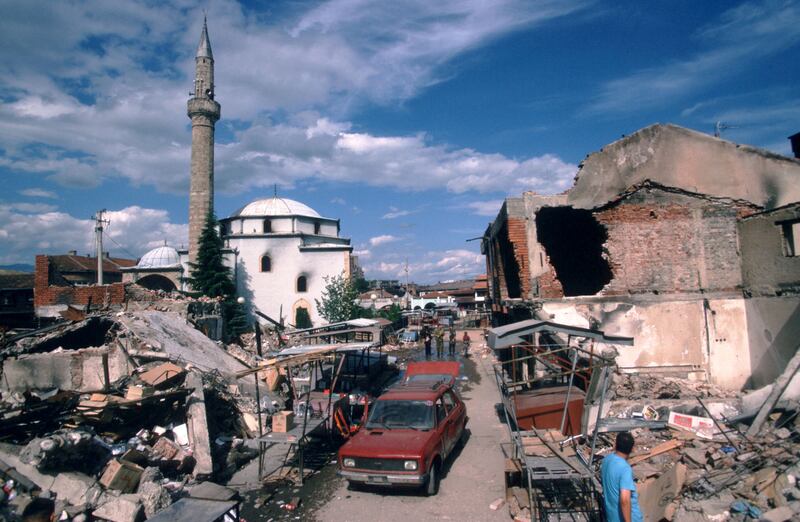Black Rock is a coastal suburb of Melbourne, Australia; White City, meanwhile, is the literal translation of Belgrade, the Serbian capital.
As the title of A S Patric's Miles Franklin Award-winning novel suggests, it's a story in which two different worlds collide.
Set in Australia in the final months of the 20th century, Patric's narrative follows the lives of two refugees, Jovan Brakochevich – a giant of a man – and his wife Suzana – a "pretty" woman with "a cutting voice and hard sharp eyes as though she found them in broken beer bottles" – who, since fleeing war-torn Sarajevo, are attempting to build a life for themselves in the Antipodean suburbs.
The devastating details of their previous existence – "some kind of horror show where monsters killed other monsters" – are slowly drip fed during the course of the novel.
In the same way the memories of what they endured haunt the characters – "white terror spectres and black-dread phantoms; the dead and living writhing in the muddy grave of his mind" – the reader is brought face-to-face with descriptions of atrocities too horrible to contemplate and loss so absolute as to appear impossible to survive.
The couple lost their home – they returned one evening to find the locks changed and their belongings discarded in the street – their children – both perished, victims of poisoned food, in the refugee camp the family eventually found themselves in – and nearly their lives.
Now, four years on, and despite the apparent peace and freedom offered by their new life, they're sleepwalking through the present: "To survive they have found a way to live without response."
Jovan in particular has tried to draw a line between his past and his present: "Everything that he has been serious about, all his work, left behind with his native tongue."
____________________
Read more:
[ Book review: Seven intriguing stories about life in North Korea in The Accusation ]
[ Book review: Kamila Shamsie’s Home Fire is a contemporary take on a Greek tragedy ]
[ Book review: Escape from Baghdad! showcases best of Saad Hossain's imagination ]
____________________
He was a professor of literature and a poet in Belgrade; here in Australia he no longer writes, he's a janitor at the local hospital where "[t]here are no problems here that can't be cleaned away".
As such, it's quite a shock then when he finds his mundane work routine thrown into disarray by a series of acts of vandalism. Graffiti is found on panes of X-ray glass, an optometrist's eye chart is defiled, the word 'INSPIRATION' is carved into a cadaver: the hospital is under attack, but no one knows from whom, or why, and while everyone wrings their hands, the vandal's activities become increasingly malevolent, violent and disturbing. The sense of malice and threat spreads across the page with the swiftness of a dense, dark fog rolling in off the sea. It seeps into the very fabric of the book, pooling in the spaces between words and along the margins. Patric isn't a thriller writer – his previous work is a short story collection Las Vegas for Vegans – but he approaches this aspect of his narrative like a seasoned pro.
Literary or filmic depictions of Australian life tend, for the most part, to focus on the comfortable middle classes, so it's a refreshing change to see the lives of working class immigrants take centre stage.
Combine this gritty realism with the other aspect of the narrative – the almost fantasy-like frenzied fever dream of terrors Patric creates – and there's the makings of a chilling TV drama here: The Bridge meets Top of the Lake.
There's an understandably close association between the brutalities in Jovan and Suzana's past and those lingering alongside them in the present. True, Jovan is jolted out of his stupor, "his own version of a sealed jar […] this is the first time in years he has felt himself being twisted open," by the appearance of Dr Graffito – the moniker afforded the mysterious vandal by those in pursuit – but unlike the other hospital staff, Jovan's no stranger to living in the shadow of the promise of something terrible. "This is going in one direction," he tells his boss. "Worse. And more worse." He's all too aware of what's happening; he knows that "[t]rying to understand crazy can make the crazy."
Black Rock White City makes for powerful but uneasy reading. So much of it appears askew – reminiscent of that moment when a benign dream tips over into nightmare – with Jovan's stubborn, halting English only adding to the reader's sense of discombobulation. As such, it's a hugely successful portrait of the immigrant experience: its inherent loss, isolation and dislocation.






